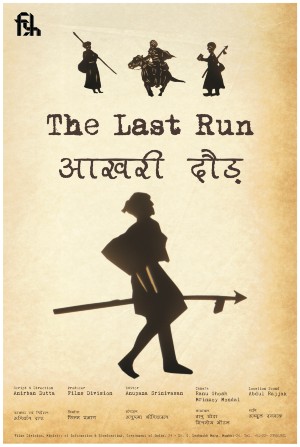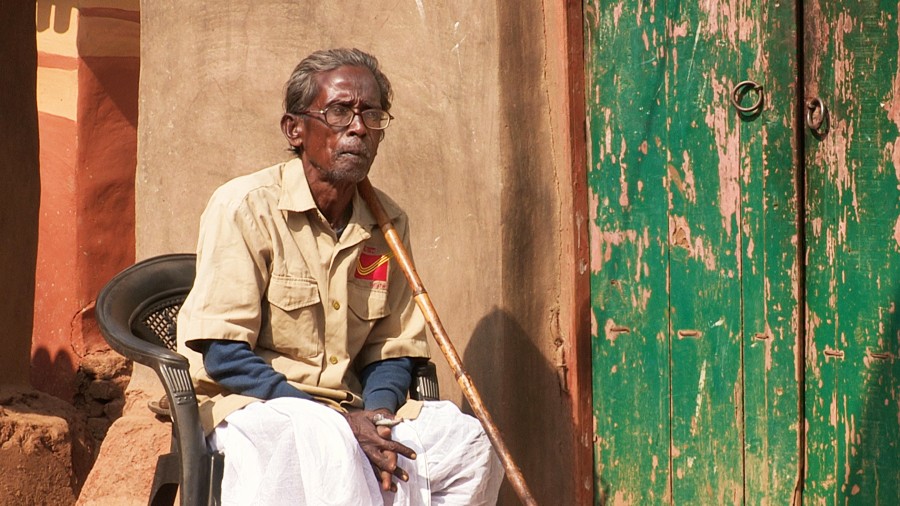Between the making of the documentary The Last Run and now lie a dozen and more life-altering months. Narratives of living that would have had to jostle for attention in the pre-pandemic scene and sensibility, bloom better today. Stories of redundancy mean something.
The 37-minute documentary by Anirban Dutta is on dak harkaras, the Bengali phrase for postal runners. “I have been very interested in postal history, in its workings in even the remotest parts of India and the fact that it is a lifeline for a lot of people,” Dutta tells The Telegraph. Where connectivity and roads end, the postal runner’s job begins. From the 12th century on, runners have been the backbone of the postal system. Dutta continues, “I was intrigued and I started looking for someone who was still doing this job.”
Dutta found Kalipada Mura, a frail 70-something postal runner, at the Ajodhya Hill Top Post Office in Bengal’s Purulia district.
“I was taken with his silence,” Dutta says. Kalipada’s father, Khepu Mura, had been a postal runner too. According to the documentary, to date, stories of Khepu Mura are repeated and re-repeated in Ajodhya village. Stories about how he would fight wild animals and dacoits — the area was heavily forested those days — to reach his bagful of mail to people.
The stark documentary captures the irony of Kalipada’s situation. On one hand, here is a man who runs for a living, and theoretically, cannot afford to fall out of sync with the clock by a tick. But, in reality, he cannot seem to keep pace with time and it seems the postal department too has fallen behind by keeping such positions alive.
Dutta shows visuals of a mud hut with a yard in front. Kalipada is sitting on a string cot and smoking a bidi. He flicks it away, puts on his khaki uniform and sets out stick in hand. Someone hollers and reminds him to wear his slippers. “Kalipada babu has been working here since 1984,” says postmaster Bibek Mahato, a wiry middle-aged man. He adds, “He is an employee of the postal department but he will never be made permanent. Till his last working day he will continue as a casual employee, a daily wager.”
Mahato prepares a bag of mail that needs to reach people in a neighbouring village. By the time he puts the seal on it, Kalipada is at the door. His runner’s drill requires him to report to the postmaster every day to register his attendance and pick up his bag of mail.
Earlier, there used to be another runner in these parts apart from Kalipada. But Dhananjoy died five years ago. “Since then my father does this alone. It is a jungle area, that’s why two people were assigned,” says Shambhu, Kalipada’s son. Shambhu and his brother Kartik fill in for their father oftentimes, when he is unwell. And so does Bondhu Gop, whose father Rotu is the runner in Baghmundi, also in Purulia. But the younger men don’t run, they cycle. Shambhu says sometimes the weight of these bags is as much as 40 kilos.

Poster of the documentary Picture Courtesy: The Last Run
The weighty responsibility, the Ulyssian run through new terrains, all of it yielded a philosophical dividend once upon a time. Dutta talks about runner and poet Gagan Harkara whom the legendary Lalon Fakir had admired.
Over the years, the contents of the bags have altered. Instead of letters, good, bad and humdrum, now they contain branded shoes, clothes, schoolbooks, credit cards, debit cards. But the runners never know what they are delivering. Says Kalipada, “I would drop the bag and leave.” Shambhu adds, “Baba does not have the permission to open the bag, only the postmaster can do so. So what is inside no one can tell.”
The dak harkara’s run is a relay race. A runner arrives at a particular place and finds another runner waiting, who picks up the despatch and keeps moving it down the human postal chain till the bag reaches its appointed destination.
Coming back to the documentary, Shambhu is seen pushing his bicycle along the lal mati... red earth. He parks his cycle in the midst of a road where the mail bags will be exchanged.
The film ends with Shambhu on his cycle; Kalipada is seated behind him. Shambhu is speaking into the mobile phone. He is saying, “He (the other runner) has already left. Please inform the postmaster that the bags could not be exchanged today.”
